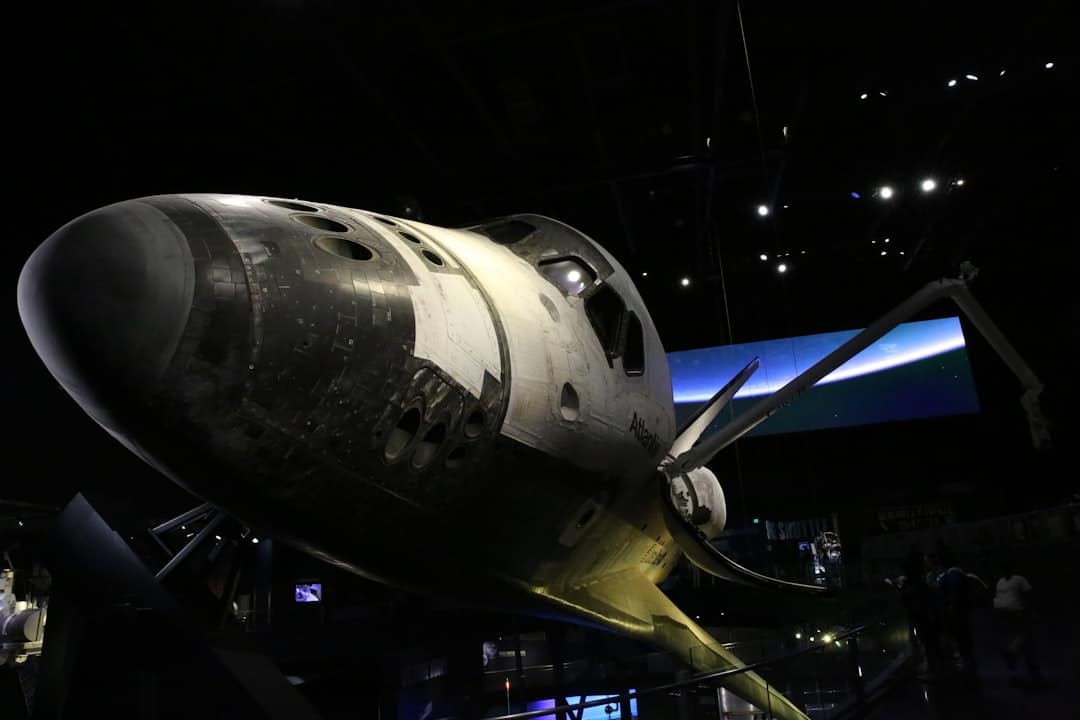The allure of the cosmos has captivated humanity for centuries, igniting imaginations and inspiring generations to look beyond the confines of our planet. The exploration of space represents not just a quest for knowledge but also a profound journey into the unknown, where the mysteries of the universe await discovery. As we stand on the brink of a new era in space exploration, the promise of new frontiers beckons us to venture further than ever before.
The recent advancements in space travel technology have made it possible for private companies and national agencies alike to embark on ambitious missions that were once relegated to the realm of science fiction. The potential for discovery in space is vast and varied. From the search for extraterrestrial life to the study of distant celestial bodies, each mission holds the promise of groundbreaking revelations.
For instance, NASA’s Perseverance rover, which landed on Mars in February 2021, is equipped with advanced scientific instruments designed to search for signs of ancient microbial life and collect samples for future return to Earth. Such missions not only expand our understanding of the universe but also challenge our perceptions of life itself. The exploration of asteroids and comets, as well as the study of exoplanets in habitable zones, further exemplifies humanity’s relentless pursuit of knowledge, pushing us to confront questions about our place in the cosmos.
Key Takeaways
- Space exploration offers the promise of new frontiers and the opportunity to explore the unknown, expanding our understanding of the universe.
- The economic impact of space exploration creates opportunities for growth and innovation, driving technological advancements and job creation.
- Technological advancements in space exploration push the boundaries of innovation, leading to new discoveries and advancements in science and engineering.
- Environmental and ethical considerations are important in balancing progress with responsibility, ensuring that space exploration is sustainable and respectful of the universe.
- Space exploration has cultural and educational significance, inspiring the next generation of scientists, engineers, and explorers.
Economic Impact: Creating Opportunities and Growth
The burgeoning space industry is poised to have a significant economic impact, creating a multitude of opportunities across various sectors. As private companies like SpaceX, Blue Origin, and Virgin Galactic lead the charge in commercial space travel, they are not only generating revenue but also stimulating job creation and technological innovation. The global space economy is projected to reach over $1 trillion by 2040, driven by advancements in satellite technology, space tourism, and resource extraction from celestial bodies.
This growth presents a unique opportunity for countries to invest in their space programs, fostering economic development and positioning themselves as leaders in this emerging market. Moreover, the economic benefits extend beyond direct space-related activities. The development of new technologies for space exploration often leads to innovations that can be applied on Earth.
For example, advancements in materials science, telecommunications, and robotics have all been influenced by research conducted in the context of space missions. The spin-off technologies from NASA’s Apollo program, such as improvements in medical imaging and water purification systems, illustrate how investments in space exploration can yield substantial returns for society at large. As nations and private enterprises continue to invest in space initiatives, the ripple effects on local economies and global markets will be profound.
Technological Advancements: Pushing the Boundaries of Innovation

The quest for space exploration has historically been a catalyst for technological advancements that push the boundaries of innovation. The challenges posed by the harsh environment of space necessitate the development of cutting-edge technologies that can withstand extreme conditions while ensuring safety and efficiency. For instance, advancements in propulsion systems, such as ion thrusters and reusable rocket technology, have revolutionized how we approach space travel.
SpaceX’s Falcon 9 rocket, which is designed to be reused multiple times, has significantly reduced the cost of launching payloads into orbit, making space more accessible than ever before. In addition to propulsion technologies, innovations in artificial intelligence (AI) and robotics are transforming how we explore and interact with our solar system. Autonomous rovers like NASA’s Curiosity and Perseverance are equipped with AI algorithms that allow them to navigate challenging terrains and make real-time decisions without direct human intervention.
These advancements not only enhance our ability to conduct scientific research on distant planets but also pave the way for future missions that may involve human colonization or resource extraction. As we continue to push the boundaries of what is technologically possible, the implications for both space exploration and terrestrial applications are immense.
Environmental and Ethical Considerations: Balancing Progress with Responsibility
As we embark on this new era of space exploration, it is imperative to consider the environmental and ethical implications of our actions beyond Earth. The increasing frequency of launches raises concerns about space debris and its potential impact on both current and future missions. The accumulation of defunct satellites and spent rocket stages poses a significant risk to operational spacecraft, necessitating a concerted effort to develop sustainable practices within the industry.
Initiatives aimed at debris mitigation, such as designing satellites with deorbiting capabilities or developing technologies for active debris removal, are essential to ensure that our pursuit of knowledge does not come at the expense of future generations. Ethical considerations also extend to the potential exploitation of extraterrestrial resources. As interest grows in mining asteroids for valuable materials like platinum or water ice, questions arise about ownership rights and environmental stewardship in space.
The Outer Space Treaty of 1967 established that celestial bodies cannot be claimed by any nation; however, as private enterprises enter the fray, there is a pressing need for updated regulations that address these emerging challenges. Striking a balance between progress and responsibility will require collaboration among governments, private companies, and international organizations to create frameworks that promote sustainable practices while fostering innovation.
Cultural and Educational Significance: Inspiring the Next Generation
The cultural significance of space exploration extends far beyond scientific discovery; it serves as a powerful source of inspiration for future generations. The images of astronauts walking on the Moon or rovers traversing the Martian landscape ignite curiosity and wonder in young minds, encouraging them to pursue careers in science, technology, engineering, and mathematics (STEM). Educational programs that incorporate space-related themes can foster critical thinking skills and creativity while instilling a sense of global citizenship among students.
Initiatives like NASA’s Artemis program aim not only to return humans to the Moon but also to engage students worldwide through educational outreach efforts. Moreover, cultural narratives surrounding space exploration often reflect humanity’s collective aspirations and dreams. Films like “Interstellar” or documentaries such as “The Universe” capture the imagination while prompting discussions about our place in the cosmos.
Art inspired by space—whether through visual arts or literature—serves as a medium for exploring existential questions about life beyond Earth. By integrating these cultural elements into educational curricula, we can cultivate a generation that not only understands the science behind space exploration but also appreciates its broader implications for humanity.
International Collaboration: Fostering Unity and Cooperation

The challenges associated with space exploration are often too great for any single nation to tackle alone; thus, international collaboration has become a cornerstone of modern space endeavors. The International Space Station (ISS) stands as a testament to what can be achieved when countries come together for a common purpose. This collaborative effort involves multiple nations working side by side to conduct scientific research in microgravity while fostering diplomatic relations through shared goals.
The ISS has not only advanced our understanding of human physiology in space but has also served as a platform for international cooperation that transcends geopolitical boundaries. As we look toward future missions—such as crewed missions to Mars or lunar bases—collaboration will be essential for success. Joint missions can pool resources, expertise, and funding while promoting peaceful relations among nations.
Initiatives like the Artemis Accords aim to establish principles for sustainable exploration on the Moon and beyond while encouraging partnerships among countries willing to adhere to these guidelines. By fostering unity through shared objectives in space exploration, we can build a foundation for cooperation that extends beyond our planet.
Accessibility and Inclusivity: Making Space Travel Available to All
The democratization of space travel is an emerging trend that seeks to make access to outer space available to a broader audience beyond professional astronauts. Companies like Blue Origin and Virgin Galactic are pioneering suborbital flights that allow civilians to experience weightlessness and view Earth from above. This shift towards commercial space tourism not only opens up new avenues for adventure but also challenges traditional notions of who can participate in space exploration.
As ticket prices gradually decrease with advancements in technology and increased competition among providers, there is potential for a more diverse group of individuals to experience the wonders of space firsthand. However, ensuring accessibility goes beyond just financial considerations; it also involves addressing physical and cognitive barriers that may prevent certain individuals from participating in space travel.
By actively promoting diversity within the industry and creating pathways for participation, we can cultivate an inclusive culture that reflects the richness of human experience while inspiring future generations to reach for the stars.
Future Prospects: Anticipating the Evolution of Space Tourism
As we gaze into the future of space tourism, it is clear that we are only at the beginning of what promises to be an exciting evolution in human exploration beyond Earth’s atmosphere. The next decade is likely to witness significant advancements in technology that will enhance safety protocols while reducing costs associated with space travel. With companies like SpaceX planning orbital flights around the Moon and even Mars colonization efforts on the horizon, the possibilities seem limitless.
Moreover, as public interest in space tourism grows, so too does the potential for new business models that cater to diverse audiences—from luxury experiences aboard spacecraft designed for comfort to educational trips aimed at inspiring young minds about science and exploration. The integration of virtual reality experiences could also allow individuals who may never travel physically into orbit to engage with simulations that replicate aspects of space travel. As we anticipate these developments, it is essential to remain mindful of ethical considerations surrounding commercialization while ensuring that humanity’s quest for knowledge continues unabated amidst this new frontier.
The burgeoning field of space tourism continues to captivate global audiences, as advancements in technology and increased investment make the dream of traveling beyond our planet more attainable. A related article that delves into the innovative processes behind such groundbreaking ventures is To Buy Time for a Failing Startup, Recreate the Engineering Process. This piece explores how reimagining engineering strategies can breathe new life into ambitious projects, much like those seen in the space tourism industry. By understanding these processes, we gain insight into the challenges and triumphs faced by companies striving to make space travel a reality for civilians.
FAQs
What is space tourism?
Space tourism refers to the concept of traveling into outer space for recreational, leisure, or business purposes. It involves individuals paying for the opportunity to travel beyond Earth’s atmosphere and experience space firsthand.
What are some recent updates in space tourism?
Recent updates in space tourism include the successful suborbital flights of companies like Blue Origin and Virgin Galactic, as well as the announcement of future space tourism missions by companies like SpaceX and Axiom Space.
Why do space tourism updates spark global interest?
Space tourism updates spark global interest because they represent a significant advancement in the accessibility of space travel for private individuals. These updates also signify the potential for space tourism to become a viable industry in the near future, opening up new opportunities for exploration and commercialization of space.
How does space tourism impact the global economy?
Space tourism has the potential to impact the global economy by creating new industries and job opportunities related to space travel, as well as driving technological advancements that can benefit various sectors. Additionally, the influx of private investment in space tourism can contribute to the growth of the space industry as a whole.
What are the potential challenges of space tourism?
Some potential challenges of space tourism include the high cost of space travel, safety concerns, environmental impacts, and regulatory issues. Additionally, the development of infrastructure and technology to support space tourism activities presents its own set of challenges.

